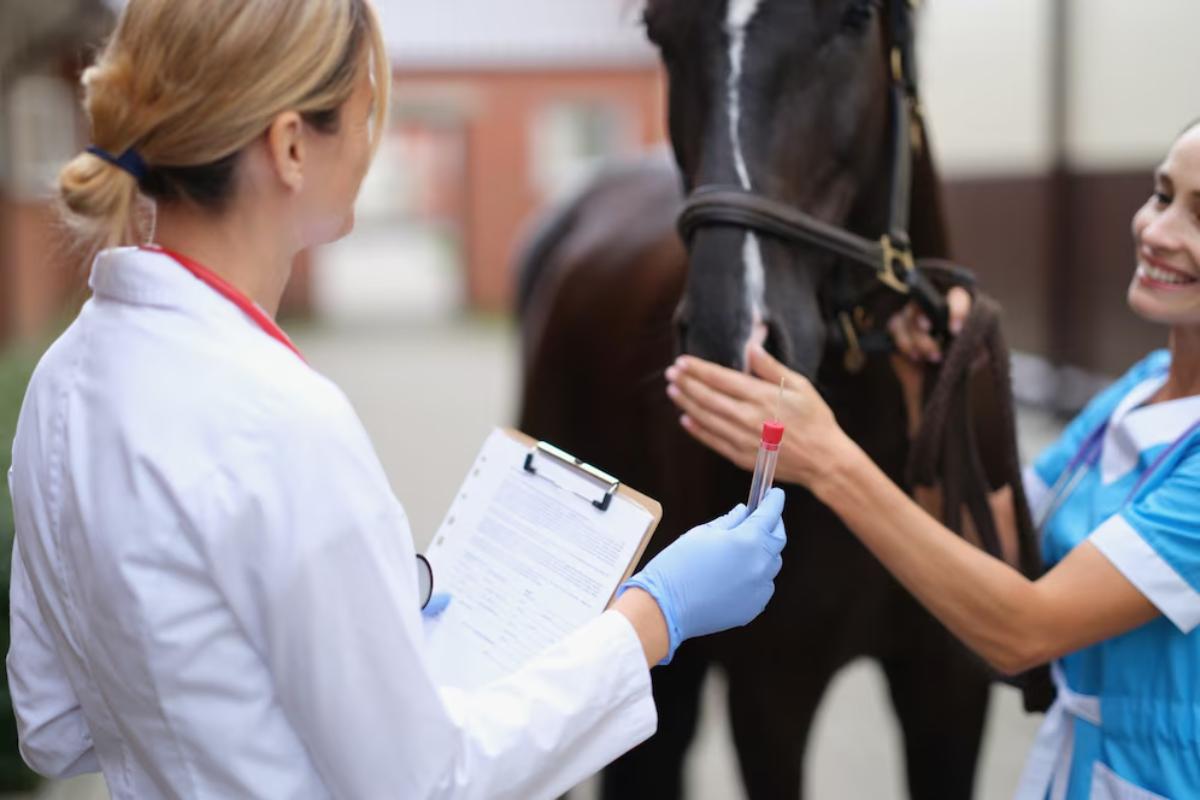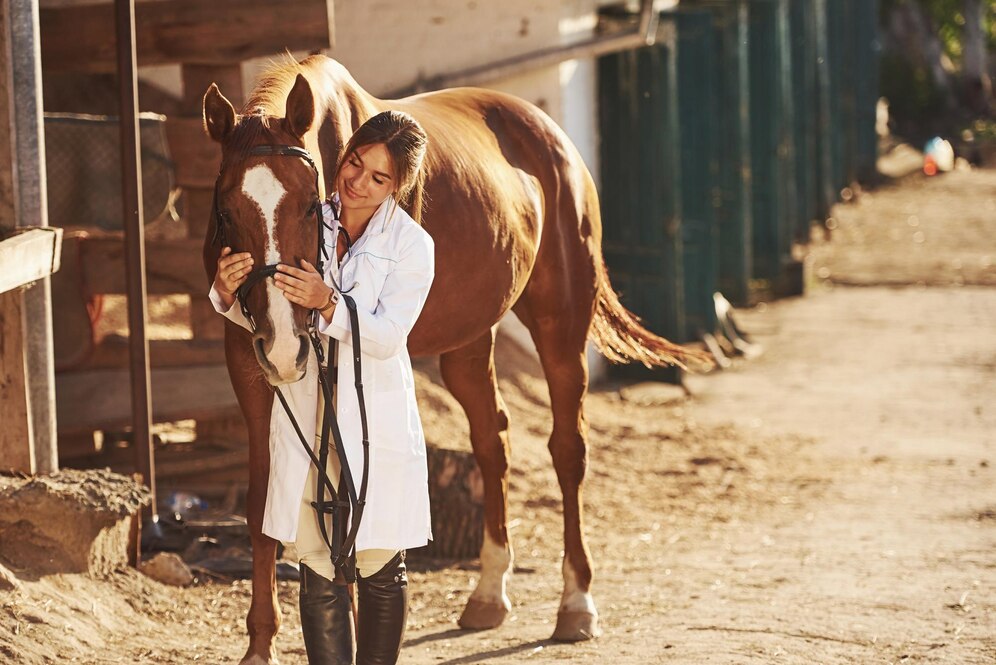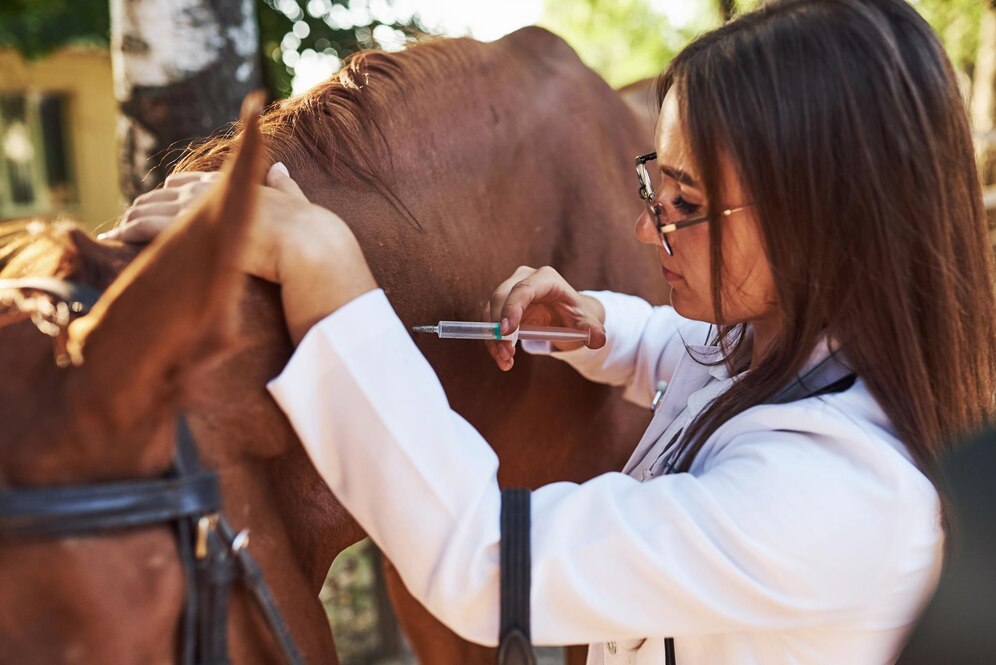
Horse Insurance: Specialised Pet Insurance Options
Owning a horse is unlike owning any other pet. These amazing animals are more than just pets. They are athletes, therapy animals, competitors, and working partners. Often, they are cherished family members too. But they’re also a significant responsibility, both emotionally and financially.
When your horse is sick, hurt in the field, or has a long-term issue, veterinary care can be tricky and expensive. The question is: Are you prepared?
That’s where horse insurance steps in.
Equine health insurance is different from regular pet insurance for cats and dogs. It provides special coverage for horses. This covers accidents, illnesses, public liability, theft, loss of use, and rider protection.
Finding the right horse pet insurance can be tough. With so many variables, policies, and providers, it can feel like navigating a course blindfolded.
In this guide, we’ll cover everything. We’ll explore the types of coverage, what makes a good policy, and share real-world examples. This will help you make a smart choice.
Why Horse Insurance Matters More Than You Might Think

Horses can face many problems. These include colic, lameness, accidents , tendon injuries, and infectious diseases. And the treatment? It’s not cheap.
A basic diagnostic visit from an equine vet starts at £150. Surgery or hospital stays can cost thousands.
Beyond medical costs, horse ownership carries legal and financial risks. What if your horse escapes and causes a road accident? Or becomes permanently unfit for riding?
Horse insurance helps by:
- Covering high-cost veterinary bills
- Protecting against public liability claims
- Compensating for theft, death, or loss of use
- Supporting rehabilitation or recovery costs
It’s peace of mind for you, your horse, and your bank account.
Types of Horse Insurance Cover Explained
When you compare horse insurance policies, you’ll find different levels of protection. Here’s a closer look at the most common options:
1. Veterinary Fee Cover
This is the core of most equine policies.
What’s covered:
- Injuries (e.g. cuts, tendon damage, fractures)
- Illness (e.g. colic, laminitis, respiratory conditions)
- Diagnostics (scans, bloodwork, X-rays)
- Surgery and hospitalisation
- Prescribed medication and aftercare
Annual limits range from £1,000 to over £7,500, depending on your policy.
Note: Some providers might not cover “pre-existing conditions.” They may also charge more for older horses.
2. Third-Party Liability
This is essential for any horse owner, even if your horse isn’t ridden.
Why it matters: If your horse injures someone or damages property, like a car, you are legally responsible. The costs can be huge.
Most insurers offer £1 million to £5 million in liability cover.
3. Permanent Loss of Use
This includes cases where your horse can no longer do its job (like riding, competing, or working), even if it is still alive.
You’ll be covered for:
- A percentage of the horse’s insured value
- Based on activity (leisure horse vs. competition horse)
- Vet certification and insurer approval required
If your dressage horse is worth £8,000 and gets a ligament injury, you might get money to help cover your loss.
4. Death, Theft & Straying
Losing a horse is heartbreaking — and financially challenging.
Policies may include:
- Death from illness or injury
- Theft or straying
- Cover for advertising and reward costs
- Euthanasia costs (if medically necessary)
Make sure the payout reflects the current market value of your horse, not just the purchase price.
5. Personal Accident Cover (for Riders)

Some policies include limited coverage for the rider as well.
Benefits might include:
- Compensation for injury from falls
- Hospitalisation expenses
- Income protection (depending on the provider)
You can often get more comprehensive cover as an add-on or with a separate rider.
Factors That Influence Your Premium
Just like with any insurance, several factors will impact what you pay:
- Horse’s age — older horses often attract higher premiums or limited cover
- Use of horse — leisure riding is lower risk than eventing or racing
- Value of the horse — the higher the value, the higher the premium
- Location — costs vary depending on veterinary care pricing in your area
- Claims history — frequent claims may increase your premium
Average annual cost? For a healthy, mid-value riding horse, plan to spend £25–£50 each month. However, costs can be much higher for competition horses.
Real-Life Story: Emily and Her Eventer, Flame
Emily insured her 10-year-old Irish Sport Horse, Flame, for £10,000. The policy includes lifetime veterinary cover, third-party liability, and loss of use. During a showjumping round, Flame landed awkwardly and tore a tendon.
Treatment involved:
- Specialist diagnostics
- Surgery
- A 6-month rehab programme
Total cost? £6,800
Emily’s insurer paid everything except the £150 excess. They also discussed compensation for partial loss of use when Flame couldn’t jump. Without insurance, she says, “I’d have had to retire Flame completely or face serious debt.”
What Horse Insurance Doesn’t Cover
To avoid disappointment, know the common exclusions in most equine policies:
- Pre-existing conditions (unless declared and agreed in writing)
- Routine care (vaccinations, dental work, worming, shoeing)
- Behavioural issues
- Non-essential or elective treatments
- Injuries from unlawful activity or negligence
- Transport-related injuries occur if not using a licensed vehicle.
Always read the policy wording carefully. If something is unclear, speak to the insurer directly.
Choosing the Right Horse Insurance Policy
Every horse is different. A semi-retired Shetland won’t need the same cover as a high-value eventer.
Ask yourself:
- Is my horse ridden or competed?
- Could I afford a £5,000 vet bill tomorrow without cover?
- Would I want compensation if my horse became unrideable?
- Do I need public liability in case of an incident?
- How important is death/theft cover to me?
Top UK Horse Insurance Providers (2025 Snapshot)
Here are some well-regarded names in the equine insurance space:
1. SEIB Insurance Brokers
- Strong reputation in horse and rider insurance
- Offers wide-ranging policies for all disciplines
2. NFU Mutual
- Known for outstanding customer service
- Offers bespoke equine cover for riders and yards
3. KBIS British Equestrian Insurance
- Covers everything from leisure to competition horses
- Offers personal accident cover and veterinary fee options
4. Petplan Equine
- Flexible options
- Excellent cover for vet fees and rider protection
- Trusted by many UK equine vets
5. Horse-Insurance.co.uk
- Budget-friendly plans for riders with multiple horses
- The online quote tool is easy to use
Tip: Always compare quotes and features side by side. Also, read independent reviews on Trustpilot or Feefo for extra confidence.
Tips for Getting the Best Value from Horse Insurance
- Insure early — young, healthy horses are cheaper to cover
- Choose the right excess — higher excess = lower premium
- Bundle policies — many providers offer multi-horse or rider packages
- Stick with the same insurer — long-term loyalty can help with claims
- Keep records — vet reports, passport updates, training logs
Alternatives to Traditional Insurance
If you’re not keen on paying monthly premiums, consider:
1. Self-Insurance
Set up a dedicated savings account for vet emergencies. It takes discipline, but over time, it can be a cushion for unexpected bills.
2. Horse Health Plans

Some vets offer annual care packages. These packages often include vaccinations, dental care, and health checks and are usually discounted.
While these don’t replace insurance, they help with predictable costs.
Final Thoughts: Invest in Peace of Mind for You and Your Horse
Horses are incredible animals — strong, sensitive, and deeply intuitive. They offer joy, partnership, and endless learning opportunities. But they also come with risks, both emotional and financial.
Horse insurance isn’t just about avoiding massive vet bills . It’s about being prepared. It’s about being ready to say “yes” to your horse’s care. This could mean surgery, a specialist visit, or handling an unexpected accident.
Picking the right cover protects your investment. It also shows you care about your horse’s well-being.


